religion news service

More than 60 years ago, the divinity school denied him admission because he is black. Speaking at a service in Goodson Chapel, he asked: “What is it that God would have Duke Divinity School do in light of that history? For if one is not honest about that history, one can’t be fully present.”

“The Muslims see us as Jews and the Jews see us as fanatics. They’re wary of us. It’s difficult."

“I have a religion — but you will call it blasphemy,” he wrote in a letter in 1865. “It is that there is a God for the rich man but none for the poor … Perhaps your religion will sustain you, will feed you — I place no dependence in mine. Our religions are alike, though, in one respect — neither can make a man happy when he is out of luck.”
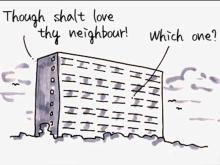
Yet this administration’s guidelines would allow businesses and government employees to pick and choose who they will serve. As a pastor, I have to ask: What religion champions spitting in people’s faces rather than turning the other cheek? How is God’s love shown through public humiliation, hate, or depriving LGBT people of a job or services?
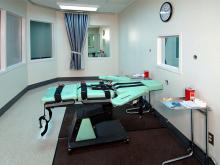
With these words the pope is also reshaping what it means to be “pro-life.” He is moving it away from primarily opposing abortion and stressing that it means protecting life at every stage, from womb to natural death.
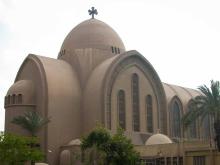
The 2,000-year-old Coptic Church of Egypt has a long tradition of hallowing those who died affirming their faith in the face of violence.
But the group that calls itself the Islamic State has launched waves of attacks on the Coptic community in recent years – claiming at least 70 lives and wounding scores of others – an unrelenting assault that has opened a debate in the community about martyrdom.
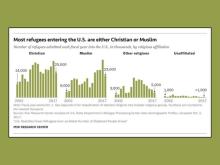
As the Trump administration continues to enforce a travel ban affecting six Muslim-majority and other countries, a Pew Research Center report tracking the influx of displaced people finds that 47 percent of refugee arrivals in fiscal 2017 were Christian and 43 percent were Muslim.

The point of the installation was not to replace human pastors with robots like BlessU-2, Vogt said. It was to ask questions: “What is blessing?” “Who can bless?” and “Can God bless through a robot?”
But to others, that possibility of robots superseding human clergy doesn’t seem so far-fetched.
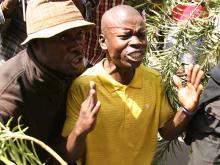
"They want their supporters to believe this is a divine call, which is not. I think they are manipulating their supporters," said the Rev. Wilybard Lagho, the Mombasa Roman Catholic archdiocese vicar general.
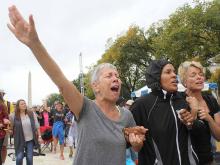
Twenty years ago, men gathered as “Promise Keepers” and filled the National Mall for a prayer rally seeking repentance and spiritual revival. On Oct. 9, it was the women’s turn.
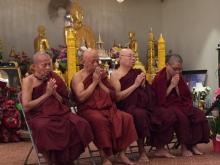
“We always know we need God,” he said, walking back and forth by an elevated slender podium, a microphone headset catching his every word. “But if there ever was a week when we really know we need God, this has been that week.”
Seven days ago — though most people here said it felt much longer — Stephen Paddock shot hundreds of people from the 32nd floor of the Mandalay Bay Hotel before shooting himself. Fifty-eight people were killed — most of them tourists — and almost 500 were wounded.

There are two actions the president should take now to stop bureaucrats from obstructing assistance to genocide survivors whose very existence as a people teeters on a precipice.
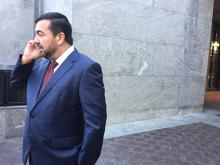
In 2010, when he first gave the opening prayer, the U.S. religious scene was far from idyllic.
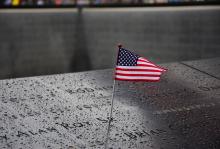
While much will hinge on the motives of a white gunman attacking a mostly-white country music crowd, that uncomfortable question also hits at some of America’s most divisive issues: race, religion, and politics.

All eyes should be on Justice Anthony Kennedy. At 81, Kennedy is the longest-serving, second oldest justice on the court and is a conservative — except when he’s not.
Kennedy has sided with the court’s more liberal justices on several landmark cases, as he did in Obergefell v. Hodges, the 2015 decision that made same-sex marriage the law of the land. But he also sided with the conservative judges in Burwell v. Hobby Lobby, a ruling that the Christian-owned chain of craft stores could deny contraception coverage.
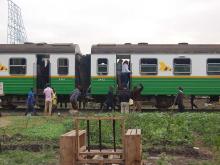
Starting in the suburb of Ruiru, about 19 miles north of Nairobi, the train for the past five years has informally hosted a growing number of self-styled pastors and a makeshift, moving congregation eager to hear the gospel.
At least two coaches turn into “churches” each day, with Christians singing, dancing, and clapping as they prepare for a short sermon during the one-hour journey.
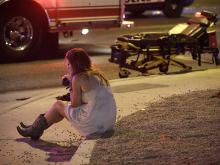
“My heart goes out to all those impacted by this senseless act of violence. When tragedies like the Las Vegas massacre occur, the political and religious barriers that too often divide us break down and we come together to mourn as Americans. This moment presents all of us with the opportunity to be there for one another as we try to come to terms with what happened yesterday. As our nation mourns, I hope we continue in the spirit of inclusion, as we are all impacted by this terrible tragedy.”
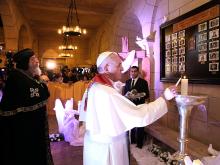
Pope Francis has changed Catholic Canon law – and met with some intense reactions.
At stake here is the language used for the Mass and the question of who has the responsibility for translating the Catholic liturgy into regional languages.
So why should this issue be so very controversial in the 21st century?
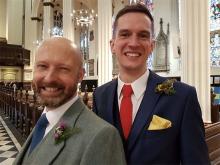
The primates of the worldwide Anglican Communion will face another tough test next week when they gather in the U.K. to grapple with the Scottish Episcopal Church’s backing of same-sex marriage, among other issues.
The bishops will meet in Canterbury two months after the first gay Anglican wedding took place in Scotland, following the SEC’s June vote to alter its canon law, which had previously defined marriage as between a man and a woman.

Now the Church of England’s trainee clergy are being offered help to understand Cranmer’s more obscure prose through a publication of a glossary. All first-year ordinands – the trainee priests studying at theological colleges – are to be given a copy of the guide together with a free copy of the Book of Common Prayer, an English-language product of the 16th-century break between England and the Roman Catholic Church, where Latin ruled.